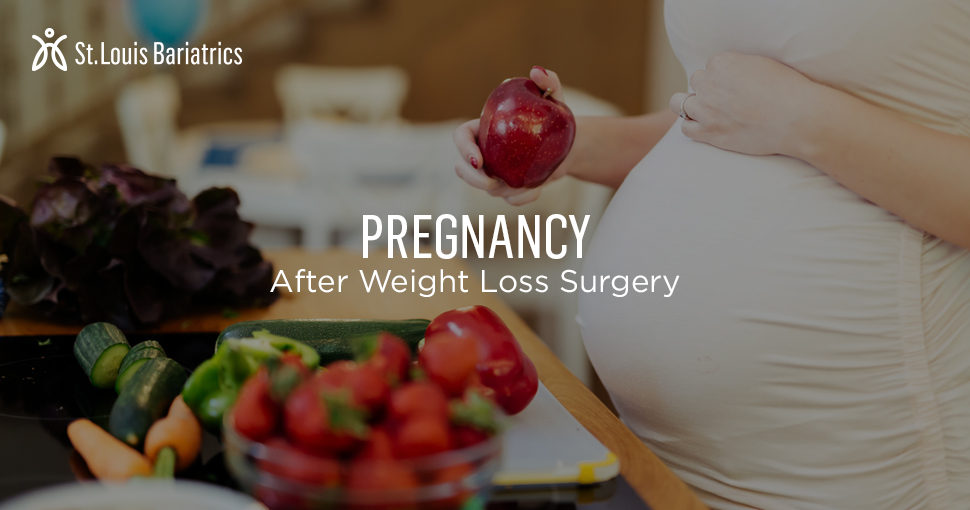

Guidelines for Pregnancy after Weight Loss Surgery
Starting or expanding a family is always an exciting time. At St. Louis Bariatrics, we have helped many women who chose to have bariatric surgery before starting a family because they may have had difficulty conceiving due to obesity. For bariatric surgery patients, or for those who are considering weight loss surgery before starting a family, here are some recommendations and guidelines to keep in mind before and during pregnancy.
Plan Your Pregnancy
Ideally, women should wait at least one year after surgery to become pregnant. This gives the body time to heal and allows the patient to lose significant weight before pregnancy. Of course, when it comes to children, we understand that life doesn’t always happen the way we plan. Getting pregnant doesn’t mean your days of losing weight are over. Read on for more ways to plan for a healthy pregnancy and promote weight loss after birth.
Get the Right Vitamins and Medications
Women who are pregnant or trying to conceive should switch from taking a bariatric multivitamin to a prenatal vitamin. High levels of vitamin A in bariatric multivitamins can be harmful to a fetus. You should consult with your doctor on any other medications you take regularly, including any over the counter medications or pain relievers.
Focus on Healthy Weight Gain
Pregnancy is not a time to focus on weight loss, but it is important to not gain too much weight. The American College of Obstetricians and Gynecologists (ACOG) advises the following weight gain guidelines, according to the mother’s pre-pregnancy Body Mass Index (BMI)1
-Normal-weight women (BMI, 18.5–24.9) should aim for 25–35 lbs.
-Overweight women (BMI, 25–29.9) should aim for 15–25 lbs.
-Obese women (BMI, 30 or more) should gain only 11–20 lbs.
Watch Your Diet
During pregnancy, you may require more nutrition. However, bariatric surgery patients with smaller stomachs can only eat so much at one time. Plan to eat 3 small meals a day with nutritious snacks as needed. Focus on lean proteins, fresh produce and hydrate with plenty of water. Avoid the following foods, which should be restricted for all bariatric patients:
xfast food
xfried foods
xsweets
xsoda
xbread
xrice
xpasta
Stay Active and Breastfeed if Possible
Pregnancy may not be the time to start new exercise routines, but many women can safely continue with their usual routines, especially with low impact exercises such as walking. Talk to your doctor about a healthy workout routine during pregnancy. When it comes to breastfeeding, ACOG recommends that, if possible, women breastfeed exclusively for the first 6 months, and should continue breastfeeding while introducing new foods until the baby is one year old.2 Breastfeeding not only has great benefits for the baby, but for moms as well! Women who breastfeed may find that they are more easily able lose the weight that was gained during pregnancy, since breastfeeding can burn between 200 and 500 calories per day.3
We’re Here for You
We want to congratulate all expecting and new mothers. Welcoming a baby introduces a lot of change, but it is important maintain your commitment to health. We are here to help patients achieve and maintain their weight loss and health goals before, during and after pregnancy. Dr. Snow and our Registered Dietitian can help answer any questions about diet and exercise for new and expecting moms. Feel free to contact us to schedule an appointment.
1 NEJM Journal Watch of the Massachusetts Medical Society December 21, 2012
2 Breastfeeding Your Baby. The American College of Obstetricians and Gynecologists. November, 2016
3 Nutrition, Exercise, and Weight Loss While Breastfeeding by Anne Smith, IBCLC